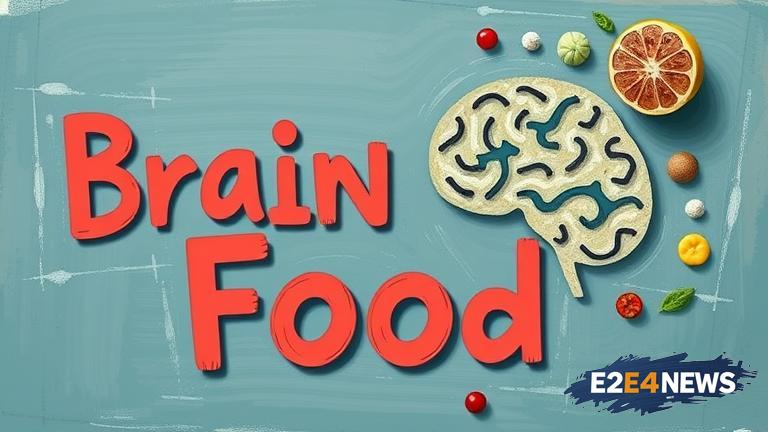As students head back to school, it’s essential to remember that a healthy diet plays a significant role in their academic performance. A well-nourished brain is better equipped to learn, focus, and retain information. In this article, we’ll explore the importance of brain food and provide tips on how to prepare healthy meals that will help students succeed. Eating a balanced diet that includes plenty of fruits, vegetables, whole grains, and lean proteins can help improve cognitive function, boost energy levels, and support overall health. A healthy breakfast is particularly crucial, as it helps jumpstart the brain and provides energy for the day ahead. Overnight oats, scrambled eggs with whole-grain toast, and Greek yogurt with berries are all excellent breakfast options. For lunch, consider packing a variety of colorful vegetables, lean proteins, and whole grains, such as turkey and avocado wraps, quinoa salads, or lentil soup. Snacks are also important, as they help keep energy levels stable throughout the day. Fresh fruit, nuts, and carrot sticks with hummus are all healthy snack options. In addition to providing essential nutrients, healthy eating can also help reduce stress and anxiety, which are common among students. By incorporating brain-boosting foods into their diet, students can improve their mood, focus, and overall well-being. Some of the best brain foods include fatty fish, such as salmon, which is rich in omega-3 fatty acids, as well as nuts and seeds, which are high in healthy fats and antioxidants. Leafy green vegetables, such as spinach and kale, are also rich in nutrients that support brain health. Whole grains, such as brown rice and quinoa, provide sustained energy and fiber, while lean proteins, such as chicken and turkey, support healthy brain function. By making healthy food choices, students can set themselves up for success and achieve their academic goals. Furthermore, healthy eating can also help improve sleep quality, which is essential for cognitive function and memory consolidation. Aiming for 7-9 hours of sleep per night and establishing a consistent sleep schedule can help regulate appetite, support weight management, and boost overall health. In conclusion, a healthy diet is essential for students as they head back to school. By incorporating brain-boosting foods into their diet and making healthy food choices, students can improve their cognitive function, boost their energy levels, and support their overall health and well-being. With a little planning and creativity, it’s easy to prepare healthy meals and snacks that will help students succeed. Whether you’re a student, parent, or educator, making healthy food choices is an important investment in academic performance and overall health. By prioritizing brain food, students can set themselves up for success and achieve their full potential. Additionally, healthy eating can also help reduce the risk of chronic diseases, such as obesity, diabetes, and heart disease, which are increasingly prevalent among young people. By developing healthy eating habits early on, students can establish a strong foundation for a lifetime of healthy eating and overall wellness. In the long run, healthy eating can also help improve mental health, reduce stress and anxiety, and support healthy relationships. By making healthy food choices, students can take control of their health and well-being, and set themselves up for a happy, healthy, and successful future.
